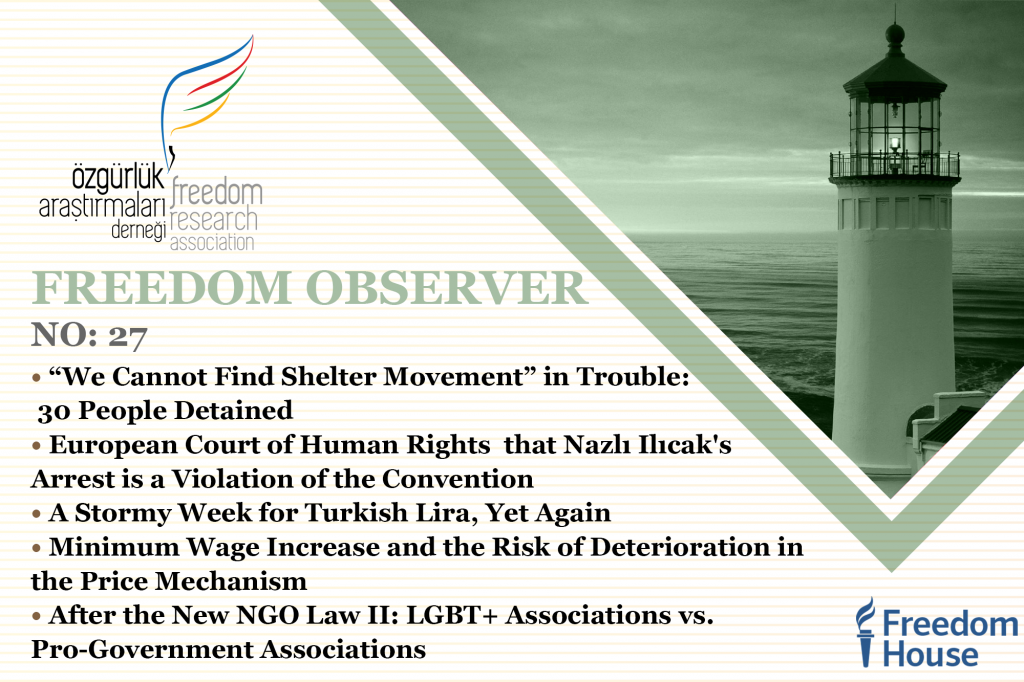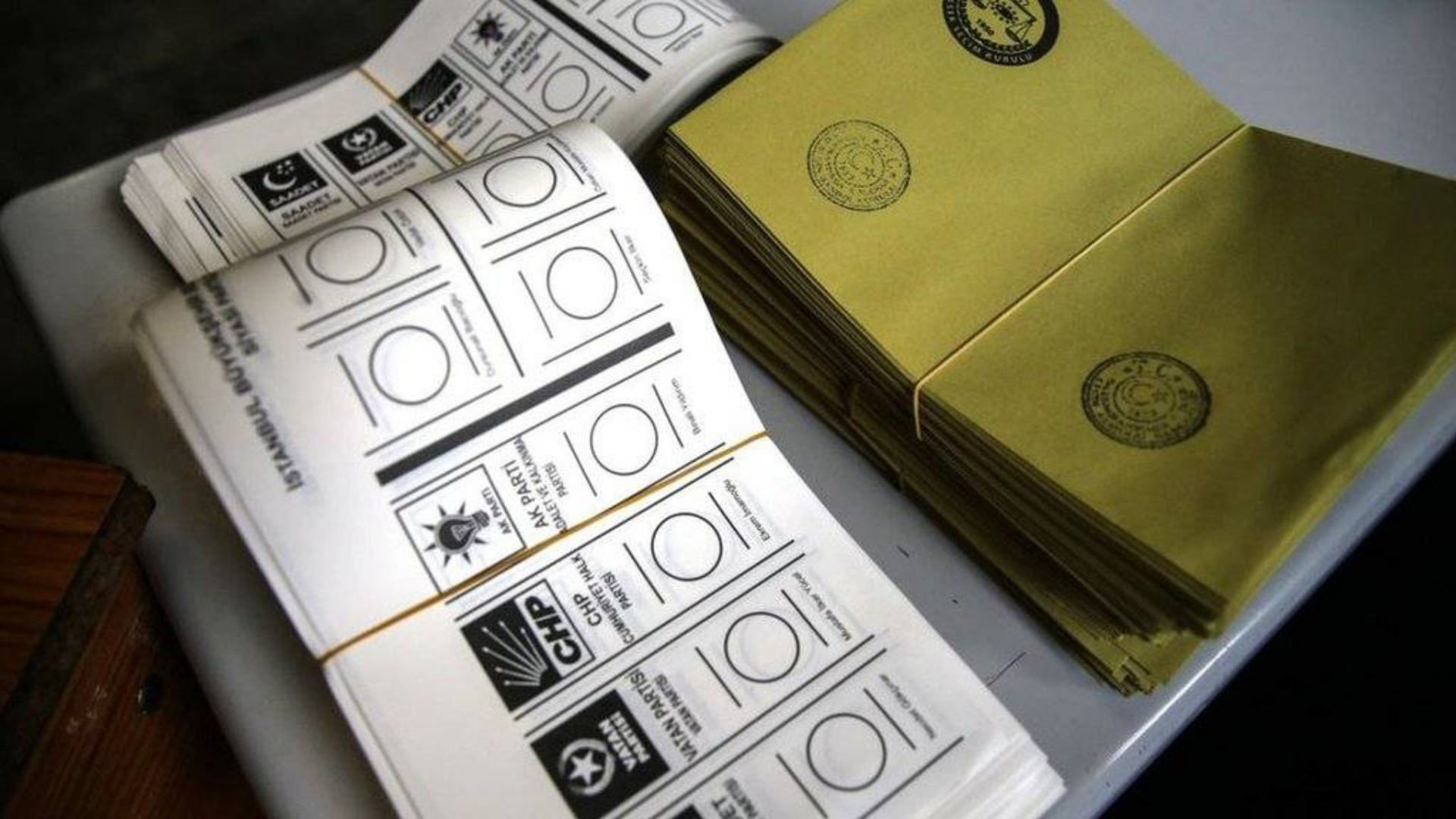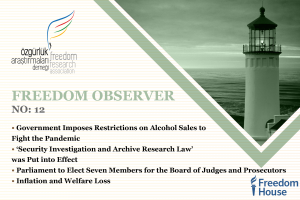
From Editor-in-Chief
For the last few weeks, the Turkish politics has been shattered by the dramatic deterioration of the economy and, in parallel, by the excessive increase in the exchange rate. As a direct result of the wrong economic policy pursued by the government, or more precisely by President Erdogan, the decrease in the value of the Turkish Lira against the leading foreign currencies such as the US Dollar and Euro and the continuing increase in inflation led the great extent of the Turkish society to fall into poverty.
The series of wrong economic policies have left people with low income, especially those without regular income, and civil servants and workers working in the public or private sector, whose wages or salaries decreased by half in the last month, and retirees, with a difficult livelihood problem. Meanwhile, it is hardly likely that the recent increase in the “minimum wage” by 50% will yield the desired results. As a matter of fact, experts draw attention to the possibility of this situation leading to increase in unemployment and informal employment.
On the other hand, students suffer in various ways from the increase in the cost of living. Higher education students, especially those who have to study far from their families, are faced with the most basic need of accommodation. In addition to ever-increasing cost of living, the inadequacy of the existing dormitory capacity adds up to the current problems experienced by students. Worst of all, the efforts of the students to inform the authorities and voice their demands about their problems are also hindered by the use of violence by the law enforcement.
The oppression by the political regime continues to manifest itself on other issues as well. The pressure of the AKP government continues with new examples on the certain segments of civil society, whose lifestyle and worldview are disregarded to the fullest by the government. The most frequently used tool by public authorities for this purpose lately is the Law No. 7262 on “the Prevention of the Propagation and Financing of Weapons of Mass Destruction”, which we have referred to several times on these pages. It is noteworthy that the relevant authorities have recently intensified the practice of using the control mechanism, which serves as a ‘Sword of Damocles’ on non-governmental organizations that pursue so-called false goals and on the associations of LGBT+ groups. As expected, conservative civil society associations seem not to be bothered by the control brought about by the Law.
Another important event of the last week was that the European Court of Human Rights (ECHR) announced that journalist Nazlı Ilıcak’s long term detention on charges of being a member of “FETO” and supporting the July 15 coup attempt has violated her right to “freedom and security” (Art. 5/2) and “freedom of expression” (Art. 10).
According to the ECHR, there was no reasonable reason to suspect that Nazlı Ilıcak was a member of a terrorist organization or attempted to overthrow the government or prevent it from carrying out its duties. The crimes against Ilıcak, as well as the articles and tweets on which her arrest is based, are related to facts and events that are already known by the public, and these articles and tweets, which is regarded as ordinary uses of freedom, are not related to purposes such as overthrowing the government or constitutional order and contributing the aims of the illegal organizations. The fact that she works as a journalist in a certain media group and tweets that raise suspicion about the possible perpetrators of the coup attempt does not necessarily show that Ilıcak is a terrorist.
On the other hand, it is only a rightful journalistic duty that Ilıcak published articles and interviewed on the events of 17-25 December 2013 related to corruption charges against certain government officials. In doing that Ilıcak informed the public about various points of view on the matter, including views contrary to the government’s position. Moreover, the issues that Ilıcak commented on have been the subject of a wide public debate in Turkey and around the world, with the participation of political parties, the press, non-governmental organizations, civil society representatives and international public organizations.
This and other recent decisions of the ECHR regarding the Gülen Community have the potential to affect other cases shaped around the identity and membership of the “FETÖ”. In addition, those who doubt about the government’s official interpretation of the July 15 coup attempt may read these decisions as a judicial support for their own positions.
“We Cannot Find Shelter Movement” in Trouble: 30 People Detained
It is by now proven that students hit hardest by the economic crisis. Especially in metropolitan cities, the increase in rent prices leaves many students facing the problem of accommodation. In addition to the high cost of living, many students cannot meet their accommodation needs due to the insufficient capacity of public dormitories. Criticizing the government’s ineffective policies, the “We Cannot Find Shelter Movement” has tried to raise the issue of housing through several methods over the past year. However, many demonstrations and protests organized by the “We Cannot Find Shelter Movement” faced administrative obstacles and scenes of police brutality.
The “We Cannot Find Shelter Movement”, first, encountered the ban by the Governor’s Office upon their plan to make a press statement in Ulus on 12 December in Ulus. A group of students who are members of the Movement, claiming that the ban has no legal basis, did not give up on their decision to come to Ankara. In response, 30 students, whose bus was stopped at the entrance of Ankara, faced with the harsh intervention of the police, and were later detained with plastic handcuffs. Students stated that 10 of their friends received heavy blows during their detention. Among those detained by the law enforcement officers were journalists such as Nebiye Arı, Yağmur Kaya and Hilal Işık, who covered the incident.
In recent years, we see that the government spends more time targeting people who voice their problems and try to set the agenda, rather than approaching those dissidents with a comprehensive approach to solve existing problems. The fact that the government sees the protests organized by the “We Cannot Find Shelter Movement” as a threat to its own existence instead of seeing it as a manifestation of the housing problem shows how far it has detached from the societal reality and how stone-heartedly it can treat groups that it sees as a threat.
European Court of Human Rights that Nazlı Ilıcak’s Arrest is a Violation of the Convention
In its decision dated 14 December 2021 regarding the individual application made by journalist Nazlı Ilıcak, the ECHR decided that the applicant’s the right to freedom and security (Art. 5/2) and the right to freedom of expression (Art. 10) guaranteed by the Convention had been violated.[1] After the failed coup attempt on 15 July 2016, Nazlı Ilıcak was arrested on charges of membership in a terrorist organization, attempting to overthrow the government and attempting to change the constitutional order by force. The basis of these accusations are the applicant’s employment in newspapers and televisions belonging to the Gülen organization, her publications praising the 17-25 December 2013 operations, her interviews with the prosecutors and police chiefs who carried out these operations, and her contact with members of the Gülen organization. The court evaluated whether the issues cited as the basis for these serious accusations, which requires life imprisonment, could be accepted as a reasonable suspicion of crime that would convince objective third parties.
Within this framework, the Court, first, has determined that working in legally operating media outlets alone does not constitute a suspicion of crime. Secondly, the Court reminded that the 17-25 December 2013 operations were on the agenda of all media and opposition parties, an investigation commission was established in the parliament on this issue, deputies from all opposition parties voted to launch an investigation, and the launching of an investigation was rejected with the votes of the majority of the ruling party. In this regard, the Court stated that publications on this matter is part and parcel of journalism. The Court noted that these publications are of a matter of public interest, even though they differ from the government’s stance, and should be regarded as a legitimate journalistic activity. In the same way, stating that interviewing the prosecutors and police chiefs conducting the aforementioned operations is also a journalistic activity, the Court also underlined the fact that there was no accusation or decision that these people were members of a terrorist organization at the said date. Stating that the fact that these people were subsequently accused of membership in an organization or that the said publications were subsequently used by the opposition or organizations to criticize the government would not lessen the contribution of these publications to the public debate and their journalistic value. Moreover, the Court further stated that the public authorities could not present any concrete evidence that the applicant made these publications on the orders of the organization and in order to legitimize the use of violence.[2]
The Court also examined the tweets that the applicant had posted after the coup attempt, which formed the basis of her accusation. Evaluating the tweets in three categories, the Court stated that the first category included inquiries about which groups were behind the coup attempt, the second category criticized the measures taken by the government in the fight against FETO/PDY, and the third category discussed the compliance of the government’s practices and policies with the principles of the democratic state of law before and after the coup attempt. Finding that all of these tweets contributed to an important public debate by the applicant, who is a journalist and columnist, did not instigate for violence in any way and did not aim to legitimize the coup attempt, the Court found that these views reflected an oppositional position against the government’s approach. Further, the Court noted that similar views were also expressed by the press, politicians, and civil society at the national and the international level.[3]
Finally, the Court evaluated the evidence directed at the applicant such as interviews with high-ranking journalists, editors, and program producers within the Gülen organization, the salaries she received from the newspapers and televisions she worked for, the dates of certain political and judicial events found in her confiscated computer, various photographs and concluded that they were ordinary practices of journalism and cannot be accepted as evidence of crime.
Therefore, the Court decided that the applicant’s right to freedom and security and freedom of expression had been violated on the charges of legitimate journalistic activities and she was deprived or her freedom without reasonable suspicion that she had committed a crime.
A Stormy Week for Turkish Lira, Yet Again
The week of December 13, 2021 passed quite quickly in terms of both the world economy and the Turkish economy. As the end of the year approached, President Erdogan’s economic policy began to show its negative effects. Indeed, this effect manifests itself mostly on the exchange rate. The USD/TL rate, which was traded at 13.82 before the domestic markets opened on Monday, hiked rapidly by 5.34 percent to 14.56 with the opening of the market. At the closing of the market, the exchange rate plummeted by 6.17 percent and closed the day at 13.66 levels. The fact that the exchange rate is so volatile in just nine hours creates an incredible predictability problem.
The volatility was not limited to what happened at the beginning of the week. The decisions of the Fed’s Federal Open Market Committee (FOMC) meeting on Wednesday also hit a blow to the currencies of developing countries, mostly to the Turkish lira. The Fed has acknowledged that inflation, which it has consistently viewed as temporary, may no longer to be so, and has stepped up its asset-buying reduction program. Expectations that the Fed will cut interest rates three times in 2022 have been strengthened. Therefore, when the markets opened on Thursday, the dollar made another attack against TL.
What did the CBRT Monetary Policy Committee do on the same day? Despite all these signs, it reduced the policy rate by 100 basis points (bps). Therefore, TL weakened even more to a historical level and one dollar became 15 TL. At the close of the week, the dollar was trading around 16.40. The worst thing is that one-year USD/TRY contracts continue to be traded at around 23 TL. The government, which persistently pursues an economic policy that stands starkly at odds with the free market, continues to shake confidence in Turkey’s future day by day. This, expectedly, results in no foreign currency inflows. To add up to the issue, there is upward pressure on the price when the domestic does not sell his foreign currency. In order for the economy to get back on track, the government needs to give up on this new model as soon as possible, quickly re-establish the economy management with completely respected names, and very strongly declare that it will put an end to its rather strange economic policies that go against the principle of the economics.
Minimum Wage Increase and the Risk of Deterioration in the Price Mechanism
After the CBRT Monetary Policy Committee meeting, Erdoğan announced that the minimum wage was increased by more than 50 percent. Turkey is a country where the minimum wage is widely misunderstood. About 55 percent of wage earners work for the minimum wage and the minimum wage is constantly approaching the average wage. In other words, the general average of wages falls to the minimum wage level. However, after the announcement of the minimum wage, it was heard that many small-sized enterprises would lay off workers. It seems that this process will result in the spread of informal work.
So, what will employers do in sectors that cannot lay off workers but has low productivity levels? Turkey is a country where the production of high value-added products is currently around 2 percent of all production. This is the reason why in most industries the production is carried out with small profit margins. In fact, most sectors are labor-intensive. For such reasons, although it is a temporary comfort for the exporting sector, the increase in the minimum wage brings about major problems for the producers who still produces for the domestic market. For these sectors, employers face with two options. The employer will either have to lay off workers or employ them informally. An externally added variable to the equation is the state subsidizing employers for wage workers.
All of these scenarios are actually problematic. If the employer lays off workers, unemployment will increase. If informal work becomes widespread, the revenues of the Treasury, which is already in hot water, will decrease. It has already been announced that no income tax will be collected from the minimum wage earners, and that even this has brought an additional burden to the budget. On the other hand, ff state subsidy is provided, there will be a burden on the Treasury yet again. Within the framework of the government’s new economy model, there is another way to both reduce the value of TL and finance all this cost. The government could issue domestic debt securities. In this case, the Central Bank will print money and fund the banks. Banks will also fund the Treasury with domestic debt instruments. However, if this method is applied, inflation can hike up to dramatic levels.
After the New NGO Law II: LGBT+ Associations vs. Pro-Government Associations
Within the scope of the “Monitoring Rule of Law and Democracy in Turkey” project, which continues with the support of Freedom House, we, as Freedom Research Association, planned a series of meetings to record political issues and feelings and to conduct advocacy activities through our Final Reports after one year passed on the “Law No. 7262 on the Prevention of the Proliferation and Financing of Weapons of Mass Destruction”. In this section, the observations obtained from the interviews with an LGBT+ association and a pro-government association will be analyzed comparatively.
Only one of the eight appointments requested by the Freedom Research Association from associations known to be close to the government and some conservative associations to discuss Law No. 7262 received a positive response. The highlight of the meeting was that while the Law was still in the proposal stage, they were worried that the relevant Law might hinder their funding activities at home and abroad due to the influence of the public debate. Yet, they stated that they did not experience any problems. It is important to highlight that the association in question which has organized funding campaigns once in the country and once abroad throughout the year has been able to obtain permission for funding campaigns and that they have not yet undergone an audit. Although it was considered natural by the representative of the association that the Law raised some concerns at the proposal stage, it was stated that this concern of the associations is unfounded, and that the Law will be effective in creating a more disciplined scene of civil society in the benefit of the country by ending the disorganized image of non-governmental organizations.
In the last Bulletin published last week, it was stated that as a result of the increased inspections after the Law No. 7262, some associations were inspected for the second time in the same year, and some associations that received fundings from abroad were targeted by the General Directorate of Civil Society Relations under the Ministry of Interior. The inspectors who came to the LGBT+ association interviewed at the office for about two weeks. The inspection went on for another a month and a half remotely through asking for information and documents. This, indeed, make these inspections even more controversial. During the audit process, the daily functioning of the association in the office was completely stopped and written photocopies of all the contents of the trainings organized by the association were requested, stating that they should not even be front and back.
The association, which did not face any sanctions as a result of the audit, still had to make serious rearrangements in its partnership and member relations. First of all, it was underlined that about 20 members resigned from the membership after the Law and some of the members of the board of directors wanted to resign due to their oppositional content posted on social media. The most important reason here is the reference of Law No. 7262 to the Anti-Terrorism Law No. 3713. The Law interprets terrorism so broadly that a member of the board of directors of an association can easily be subjected of a terrorism investigation due to their social media posts, and may no longer be able to enter the decision-making bodies of any association. Worst of all, a trustee can be appointed to an association and then its assets can be confiscated. While it was stated that membership applications have decreased rapidly in recent years, it was also stated that the government and the pro-government media’s efforts to marginalize LGBT+ associations and portray them as criminals by using so-called pejorative adjectives such as ‘LGBT members’ caused a serious decrease in membership rates.
Believing that they would not be able to get permission for funding campaigns, the association had to stop organizing funding campaigns for LGBT+ people and only confined its activities to share campaign news. Finally, the representative of the association, who stated that the membership fees are very low and they do not have any income-generating activities, stated that one of the biggest losses of this process is withering away of foreign funds and worsening international cooperation. It was stated that after the law, the foreign partners’ request for English translation of all kinds of information and documents in the projects and the rejection of the slightest controversial issues jeopardizes solid international cooperation due to political relations. In the meeting, the representative of the association also said, “We are afraid that we will enter a process that will lead to the fact that non-governmental organizations working with groups (LGBT+) whose legitimacy is constantly questioned even today, like us, cannot find any financial resources after the Law No. 7262”.
[1] Ilıcak/Türkiye (No:2), B. No:1210/17, 14.12.2021
[2] Para. 142-143
[3] Para. 144-150.





